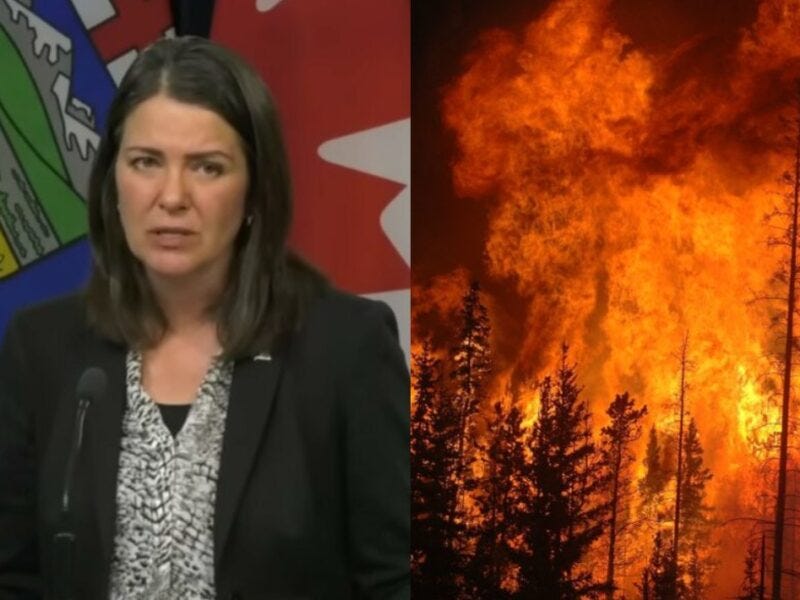Is carbon capture part of the great Canadian compromise?
Danielle Smith has tied irresponsible conditions to her support for the giant Pathways carbon capture project. Mark Carney needs to make clear that Big Oil's agenda is not Canada's agenda.

Late Friday, Bill C-5, the so-called One Economy Act, was approved by the House of Commons in two separate votes. One vote approved the non-controversial “national standards” part of the bill while the second vote approved the more contentious “projects of national interest” component.
The legislation is now off to the Senate with the inclusion of important amendments including the need for the written consent of affected provinces before the government chooses to fast-track a given project.
The amended law now also prevents Cabinet from overriding legislation like the Indian Act when approving projects. In addition to this amendment, Carney has committed his government to extensive consultations with First Nation’s leaders over the summer. I am writing this on Saturday, National Indigenous Peoples Day, and this is all for the good.
As the Star’s Martin Reg Cohn wrote Saturday, Bill C-5, along with BC’s Bill 15, appears to be taking the responsible route to speeding up project approvals in contrast to Doug Ford’s deeply flawed provincial Bill 5. The objectives of the three bills may be the same but both BC and the feds have shown a respect for Indigenous rights while the Ford government has done anything but.
In following the debate over what should - or should not - be considered a project of “national interest” under Bill C-5, the kind of project that has given me the most trouble are so-called carbon capture projects. Prime Minister Carney seems to have tied his support for new fossil fuel infrastructure—like a potential pipeline to the B.C. coast—to major investments in projects such as these. He’s described this as part of a “grand bargain” where Canada could expand oil exports if the environmental footprint is significantly reduced through carbon capture technology.
As I wrote in a previous post, I don’t believe there is either a business case or a political case to be made for a third pipeline carrying Alberta crude to the BC coast for export to China. The Trudeau government invested $34 billion in taxpayer money in doubling the capacity of the Trans Mountain Pipeline for this purpose and it is presently well below capacity. Carney should give a flat-out “No” to a new oil pipeline from Alberta to the BC coast.
But whether there is a case for federal facilitation of carbon capture projects separate from new oil pipelines, is another thing entirely. Should such projects, as the Prime Minister has suggested, be expedited under Bill C-5 as projects of national interest?
The argument against such projects put forward by environmental groups is pretty straightforward. Most environmental groups argue that carbon capture and storage (CCS) is little more than a lifeline for the fossil fuel industry. By capturing emissions instead of phasing out fossil fuels, CCS allows oil, gas, and coal operations to continue under the guise of being “cleaner”.
The second major objection from the enviros is that despite decades of development, CCS has not consistently delivered on its promises. Most projects capture only a portion of emissions, and some use the captured CO₂ for enhanced oil recovery—a process that extracts even more fossil fuels.
Finally, environmental groups argue that CCS projects are expensive to build and operate. On top of that, the financial viability of a CCS often depends on carbon credit markets, which are still volatile and underdeveloped. This uncertainty makes long-term planning difficult and poses a real disincentive for investors.
As someone who sees all politics as necessarily incremental, I am not too concerned with the first two arguments. The fact that the Alberta and Saskatchewan economies are more dependent on fossil fuels than the rest of Canada is a reality we just have to accept - at least for now. If CCS can help reduce their fossil fuel footprint, I am all for it.
However, the cost of building CCS projects and the volatility of the carbon credit markets that their financial viability depends on, is a real issue. Which brings us to Alberta’s giant Pathways project. The discussion of the proposal to build one of the largest carbon capture projects in the world, continues right after the paywall.
Keep reading with a 7-day free trial
Subscribe to Oversight to keep reading this post and get 7 days of free access to the full post archives.

